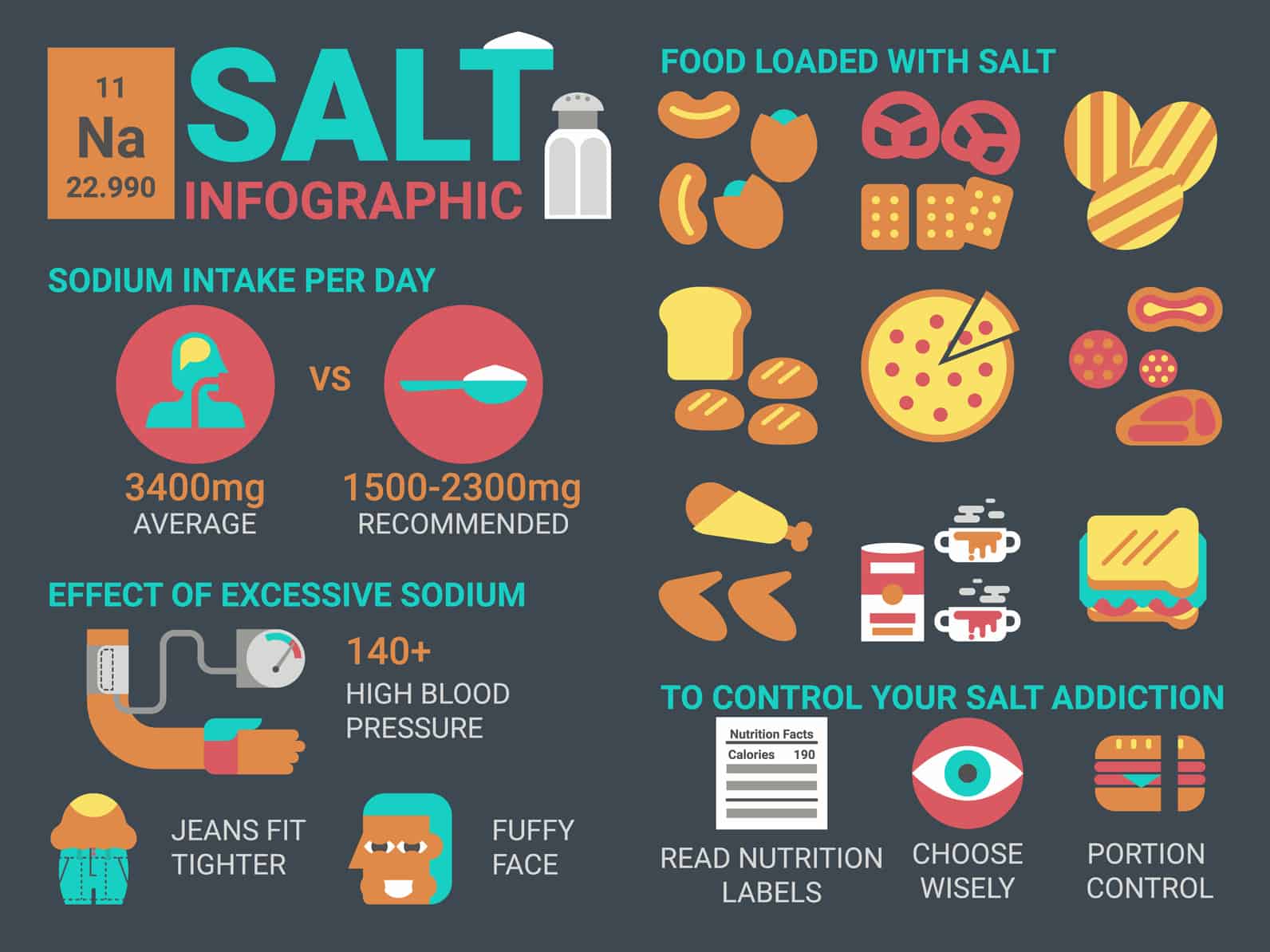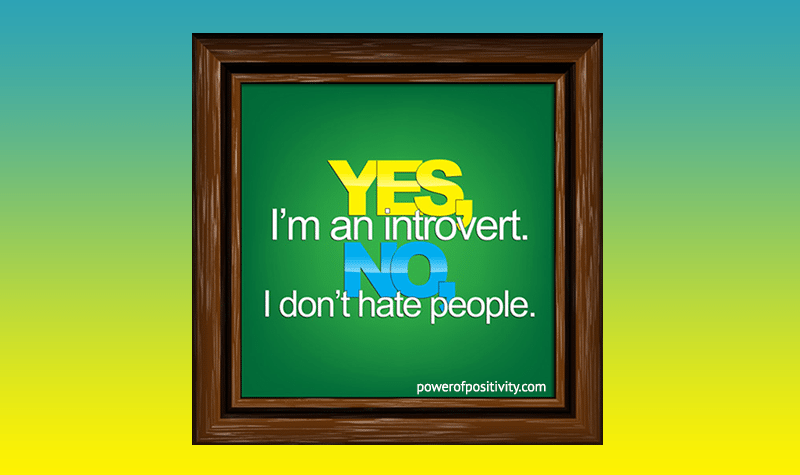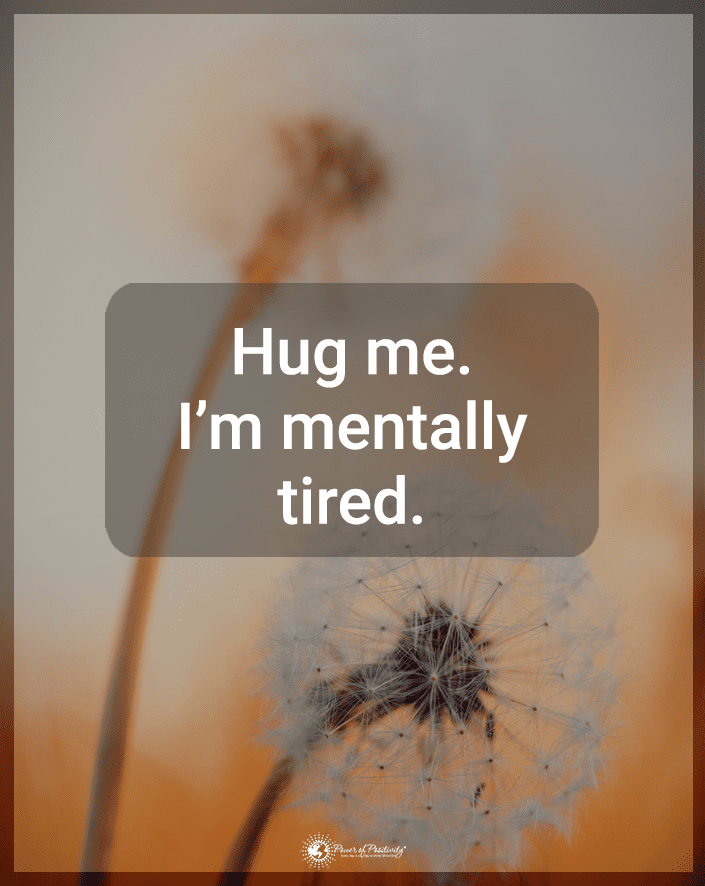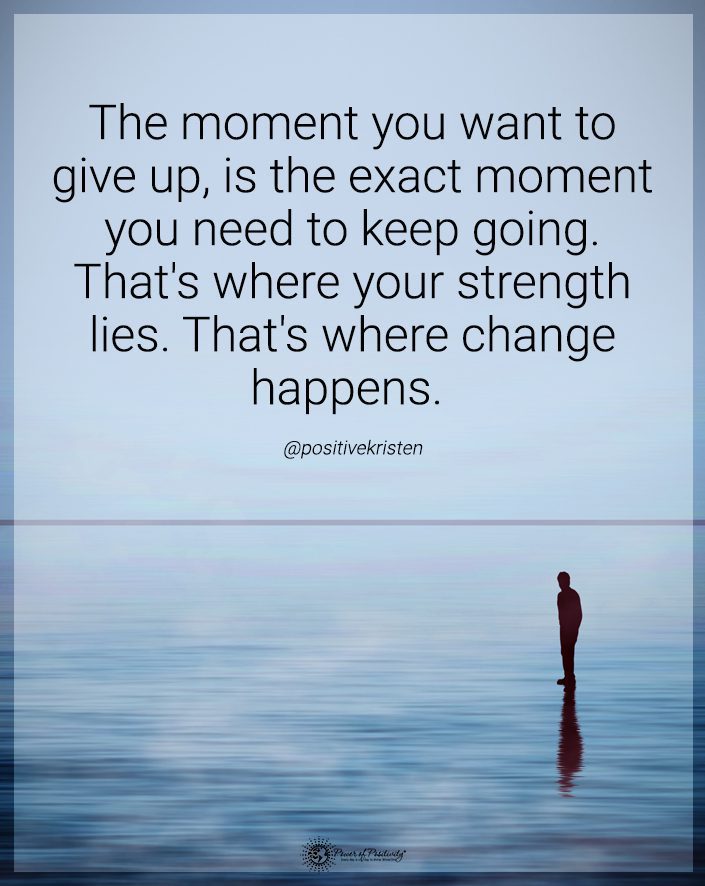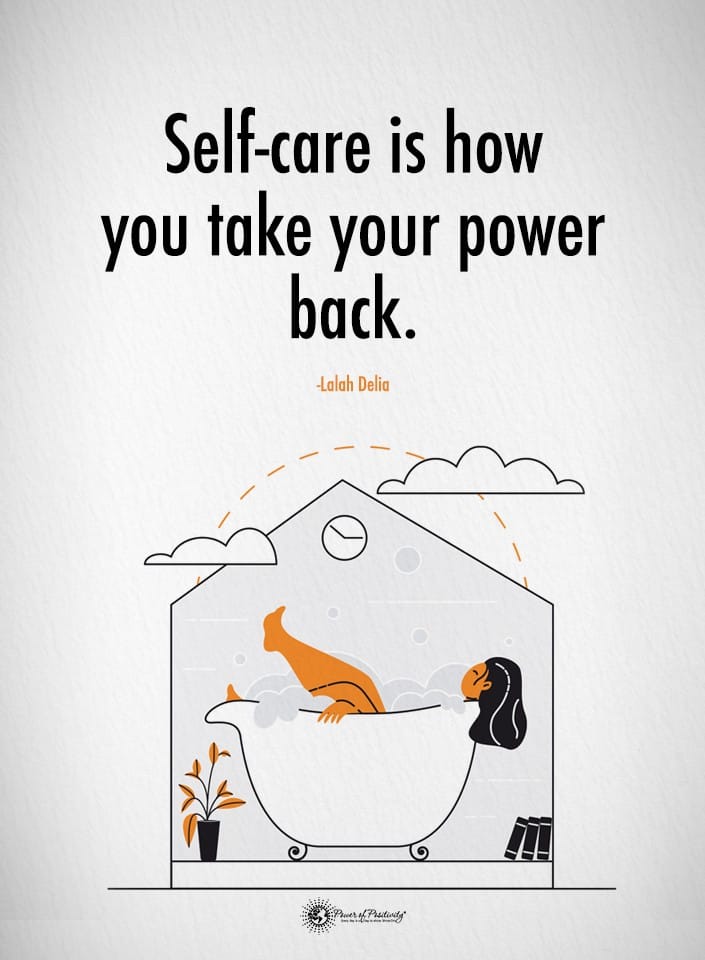Too much salt may lead to heart disease, high blood pressure, and stroke. Sodium causes your body to lose calcium pulled from your bones. Salt substitutes are a great way to lower your sodium consumption. Using them in place of salt could help reduce your blood pressure and prevent other heart-related diseases.
How much salt should you eat?
The 2020-2025 Dietary Guidelines for Americans recommend eating less than 2,300 mg of sodium daily. This amount is about one teaspoon of salt. However, most Americans consume as much as one and a half teaspoons of salt daily.
Foods with a lot of salt include these:
- Frozen meats, prepared dinners, pizzas, and burritos.
- Smoked meats, canned chicken, bacon, and cold cuts.
- Canned chili, ravioli, or other canned entrees
- Salted nuts or seeds
- Canned beans
- Canned soups
- Buttermilk
- Cottage cheese
- Prepacked mashed potatoes, rice, or pasta
- Salad dressings, ketchup, and other condiments
- Butter or margarine
How do you know if you should switch to salt substitutes?
You should look for these symptoms if you’re overeating salt.
- You feel thirsty
- Puffy face or hands
- Swollen feet or ankles
- Headache
- Bloating
- High blood pressure
- Weight gain
- Not sleeping well
- Pee a lot
- You feel weak
- Upset stomach
20 salt substitutes to improve your blood pressure
Here are twenty different salt substitutes to help you cut back on your salt intake.
1. Lemon juice and zest
Lemon juice can perk up any dish. The acidic flavor of lemon juice is so delicious that you may not even notice the swap. Squeeze lemon juice in your brown rice, salads, soups, and stews. Use the zest in mashed potatoes, roasted veggies, and grilled meats.
2. Nutritional yeast
Nutritional yeast is a popular salt substitute. It has a cheesy flavor that tastes great in baking, casseroles, and meats. Sprinkle it on popcorn, salads, or oven-roasted vegetables. Besides its salt-replacing flavor, nutritional yeast contains healthful B vitamins, which boost your mood. So nutritional yeast is a good start if you want a healthy sodium replacement.
3. Seaweed flakes
Any sea veggies, such as seaweed, kelp, or algae, can work as a salt substitute. These dried flakes have a brine flavor and 96% less sodium than regular salt. Seaweed flakes are a good source of nutrition, such as
- Magnesium
- Iron
- Fiber
Sea veggie flakes aren’t everyone’s favorite. So you may need to use them only on certain foods for the flavor you want.
4. Liquid amino acids
Liquid amino acid comes from soybeans treated with an acidic solution. Sometimes they’re made from fermenting coconut sap with water. Amino acids have a savory flavor similar to salt. It’s suitable for veggies, stews, or meats. Be sure to check the label of the brand of amino acids you’re using. The soy versions can have a lot of salt. Coconut amino acids have less salt than soy. Amino acids have a unique flavor. Not everyone likes the taste, so try it to see if it’s for you.
5. Infused oils
Here’s another popular sodium substitute–infused oils. There is a wide variety of flavored oils to choose from. These infused oils are usually extra virgin olive oil infused with lemon, cayenne pepper, garlic, or herbs. These yummy salt substitutes are healthy choices to avoid hypertension or high blood pressure. For example, you can make an herb-infused oil like this:
- Run your bottles or jars through the dishwasher to be sure they’re clean and sterilized.
- Fill these jars with herbs like rosemary, dill, or thyme.
- Slowly pour the extra virgin olive oil into jars. Add enough oil to cover them completely.
- Put the lid on the jar. First, make sure it’s tight. Then, set it in a cool place in your kitchen.
- Every couple of days, shake the jars to mix the oil and herbs.
- Let the infused herbs set for three to six weeks.
- Strain the oil through cheesecloth into another clean bottle. Squeeze the herbs to remove all the oil.
- Put the lid on the jar. This infused oil should last up to a year if you keep it at room temperature.
6. Chili pepper
Your dishes can taste good without salt. Low sodium doesn’t mean your food will lack flavor. Add chili pepper to your meals if you crave spicy and well-seasoned foods. Chili peppers add flavor to popcorn, salads, and soup. You’ll get the bold taste without the unhealthy side effects.
7. Dill
Dill is a flavorful alternative to salt. It’s delicious on salmon, squash, or potatoes. Dill weed herb is related to celery. Dill seeds replant themselves and can take over whole herb beds. You can use dill seeds to add flavor to pickles, egg salads, or cucumber salads.
8. Smoked paprika
Smoked paprika spices up any dish. Its smoky flavor works well in items that generally call for salts, such as tacos, stews, chili, or salsa. Smoked paprika contains vitamins E and C. It’s good protection against heart disease, high blood pressure, and stroke. This delicious salt alternative also has phosphorus, potassium, iron, and magnesium.
9. Mushrooms
You may not have thought of using mushrooms as a salt substitute. That’s okay; not many people do. Mushrooms add a meaty flavor to your vegetable dishes. You can caramelize them and put them on meats or savory rice dishes. Combine your sauteed mushrooms with balsamic vinegar for unique flavors in your favorite dishes.
10. Vinegar
Vinegar adds zing to salt-free dishes. All types of vinegar are versatile. Use apple cider vinegar in salad dressings. Try balsamic vinegar in sauces or gravies. Red wine vinegar works well in marinades or reductions—champagne vinegar spices up chicken, shrimp, or fish.
11. Beer or Wine
Beer or wine is another flavorful salt substitute. Either libation works well in soups, pasta sauces, meat marinades, or stews. Beer adds an earthy flavor to your dishes, while wine adds sweetness and acid. If you’re cooking for your kids, don’t worry about the alcohol, it evaporates during cooking.
A note about sodium in alcohol: Beer and wine contain some sodium, so check the label if you must follow a sodium-free diet. So while they may help lower salt from your cooking, they do not wholly eliminate it.
12. Salsa
Salsa made with tomatoes, jalapenos, cilantro, and lime is a great salt substitute for omelets, fish, meat, appetizers, and more. However, store-bought salsa may contain a lot of salt, so it’s best to make your own or seek a low-sodium canned version.
13. Cinnamon
Cinnamon is a common ingredient in baked goods, but it’s a great alternative to salt. It has a warm and spicy flavor. Many cultures mix ground pepper with cinnamon to spice up savory dishes such as these:
- Soup
- Stews
- Curries
- Meat marinades
- Savory rice dishes
- Chicken
- Turkey
14. Garlic powder (one the easiest salt substitutes)
Garlic powder adds flavor to dishes. It blends in better than chopped garlic. It’s good in cases where you want just a hint of garlic. Add it to salads, mac and cheese, and salad dressing to replace salt.
15. Fresh ground pepper
Salt and pepper usually go together, but ground pepper can go solo and still give your food great flavor. Be careful to go slow when it comes to black pepper. It can hurt your stomach and change the taste of your dishes. However, a few shakes of ground pepper will flavor salads, soups, sauces, casseroles, or stews.
16. Oregano
If you’re cooking Italian or Greek food and want to skip the salt, add oregano to the dishes to add flavor. Use oregano in pizza, red sauces, chicken, or fish Using this delightful herb is a flavor way to eliminate salt without losing flavor.
17. Low-sodium broths
Store-bought broths are high in sodium. The salty flavor can overpower the flavor of your dish. If you don’t have time to make broth, try the low-sodium version to keep your salt levels down. These broths work just as well as the high salt versions. Use low-sodium broth in mashed potatoes, sauces, gravies, or when you cook brown rice.
18. Turmeric
Turmeric has become famous for its anti-inflammatory properties, but it’s a good salt alternative. It’s good in curries, roasted vegetables, stews, and egg dishes. It’s best to buy organic turmeric at your local store. This guarantees there aren’t additives in the spice.
19. Parsley (if you prefer lighter-tasting salt substitutes, make this herb a go-to)
Fresh parsley adds a bright flavor to various dishes. Its fresh taste adds a little zing to your rice, savory sauce, stews, and pasta dishes. Parsley has vitamins K, C, and A. It’s a healthier choice than salt and can help reduce your risk of these conditions:
- Stroke
- Heart disease
- High blood pressure
- Diabetes
- Cancer
- Kidney problems
20. Coriander
This somewhat unknown spice has a mild citrus flavor. It’s often paired with chicken or beef. Many Indian or Mexican dishes contain coriander. Besides being a great salt alternative, coriander has other health benefits, such as:
- Help lower blood sugar
- Boost your heart health
- Rich in antioxidants
- It helps digestion and gut health
- Protects your skin
- Fights infections
Are commercial salt substitutes healthy?
You may have seen salt substitutes at your local grocery store. Many of these contain a lot of potassium chloride instead of sodium. However, potassium isn’t safe for everyone.
Indeed, too much potassium can cause kidney problems. If you have kidney, liver, or heart disease, check with your doctor before you use one of these salt substitutes. Better yet, skip the store-bought brands and use a natural alternative to reduce your sodium.
Final thoughts on using salt substitutes to manage your sodium intake
Overeating salt is dangerous to your health. Overconsumption of sodium can lead to hypertension or heart disease. You may not salt your food, but salty pre-made foods, ketchup, and store-bought salad dressings provide you with more salt than you need. These twenty salt alternatives could help reduce salt, get healthy and feel better.


